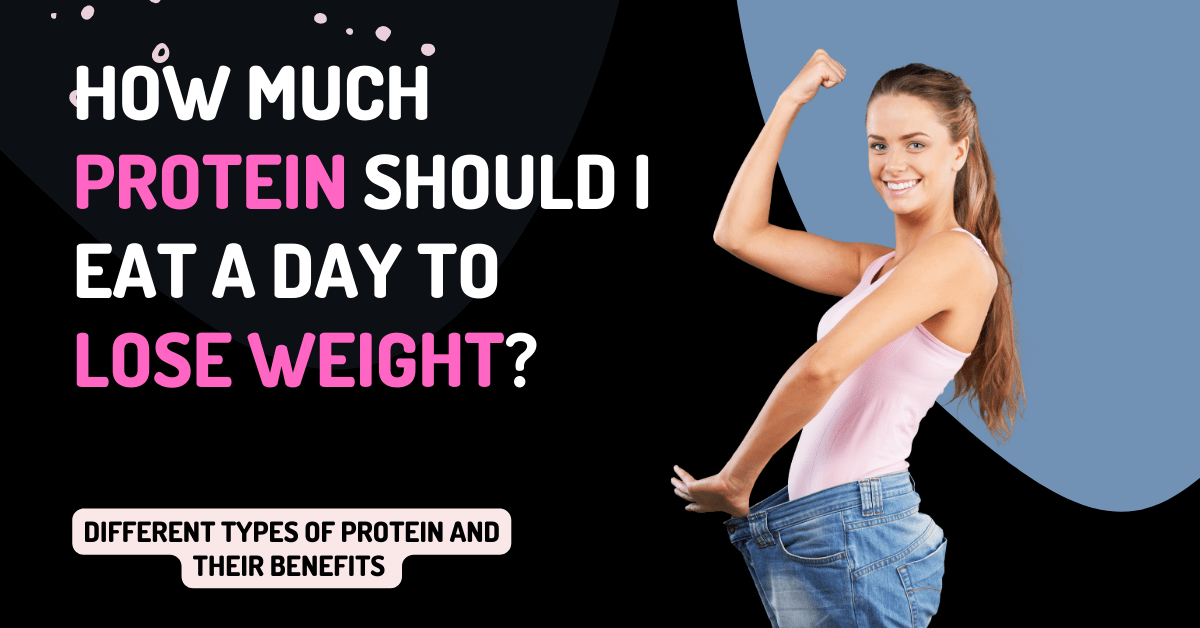
If you're into fitness, you've probably heard all about protein and its importance in achieving your health and fitness goals.
But what exactly is protein, and why is it so important? This blog post will give you a crash course on all things protein so that you can make informed decisions about your nutrition.
Different Types Of Protein And Their Benefits
Protein is a powerhouse nutrient, one of the most important during weight loss and muscle-building journeys.
There are so many different types of protein out that it can be hard to keep them all straight! To ensure you’re getting the most nutritional bang for your buck, let’s quickly review some of the main forms of protein.
Whey proteins are fast-digesting and fantastic right after a workout. In addition, plant-based sources like hemp, peas, other legumes, soy, grains, and vegan shakes typically have more fiber than animal sources.
And finally, if you're looking for a slow release to fuel your day, consider eggs, dairy products such as Greek yogurt or cottage cheese, and deli meats like turkey or chicken.
Also Read: Boiled Potatoes for Weight Loss - 3 Days Diet Plan
How Does Protein Help with Weight Loss?
Many people turn to fad diets or quick fixes that promise drastic results when trying to lose weight. However, these methods are often unsustainable and can lead to yo-yo dieting, harming your health.
Instead, a more effective approach is to focus on making small, sustainable changes to your diet that will lead to gradual, sustainable weight loss. One such change is to increase your protein intake.
Protein helps with weight loss in several ways. First, it makes you feel fuller for longer after eating, which can help to reduce overall calorie intake.
Second, it helps preserve lean muscle mass during weight loss, because muscle tissue burns more calories than fat tissue. Finally, protein provides the body with the amino acids it needs to build new muscle tissue, which can help increase metabolism.
How Much Protein Should I Eat?
The amount of protein you need depends on several factors, including your age, activity level, and fitness goals. The current recommended daily allowance for protein is 0.36 grams per pound of body weight.
For example, if you weigh 150 pounds, you would need 54 grams of protein per day. However, you may need more than this amount if you are very active or trying to lose weight, you may need more than this amount.
A good rule of thumb is to aim for 1 gram of protein per pound of body weight. So in the example above, the person would need 150 grams of protein daily.
Also Read: 9 Important Weight Loss Diet Tips | Never Ignore
How To Incorporate More Protein Into Your Diet
Incorporating more protein into your diet doesn't have to be a drag. There are plenty of tasty and quick ways to get your daily protein intake.
For example, consider adding grilled chicken, eggs, or crock pot recipes that mix protein-rich foods such as nuts, beans, and grains into one delicious meal!
Likewise, if you're vegan or vegetarian, there are plenty of plant-based alternatives like tofu and tempeh - even seitan for those looking for a meat swap.
Try swapping out carb-heavy oatmeal for protein-rich eggs with avocado and tomatoes for breakfast. Or, whip up a smoothie with your favorite fruit, Greek yogurt, and a scoop of protein powder.
For lunch, try a garden-inspired tuna salad wrap accompanied by crunchy veggies like bell peppers and carrots. At dinnertime, change it up with some teriyaki seared salmon served over brown rice. And don't forget about snacks!
Getting creative with hummus dippers such as zucchini fries and sweet potato discs makes getting in those extra grams of protein an enjoyable experience - not a chore!
Conclusion
Protein plays a vital role in weight loss and management by helping you feel fuller for longer and preserving lean muscle mass during weight loss.
The amount of protein you need depends on factors such as your age and activity level, but a good rule of thumb is 1 gram per pound of body weight.
You can make small, sustainable changes by including protein in your diet, leading to gradual and sustainable weight loss.

Add new comment